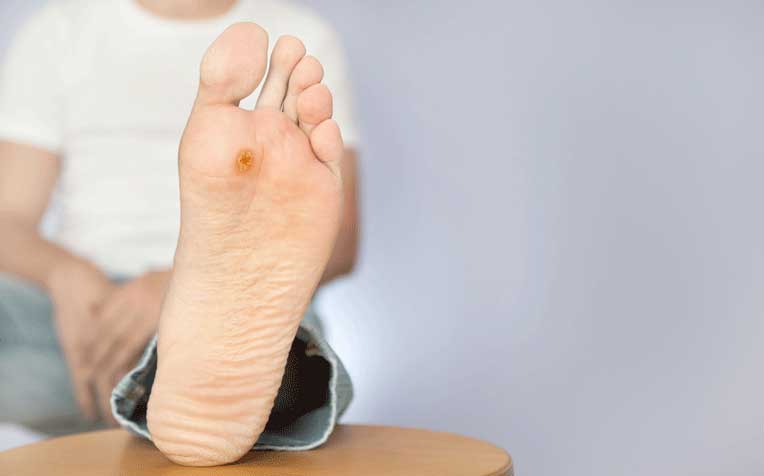HealthXchange will NEVER ask you to transfer money over a call. If in doubt, call the 24/7 ScamShield helpline at 1799, or visit the ScamShield website at www.scamshield.gov.sg.
Plantar Warts (Verrucas): What Is It?

Plantar warts are caused by a specific type of HPV that can be trasmitted from contaminated objects and surfaces.
Most verrucas or plantar warts resolve on their own, but treatment may be required if the wart causes pain or discomfort
Verrucas are warts that occur on the soles of the feet. Also called plantar warts, they are the same as warts on any other part of the body. However, they may have a flatter appearance due to the pressure exerted on them during walking.
Plantar warts are caused by certain types of human papilloma virus (HPV). There are over 100 different types of HPV. Only a few will cause plantar warts. These types of HPV are different from the ones associated with genital warts and cervical cancer.
These specific HPV types cause an extra amount of keratin, which is a hard protein, to develop in the top skin layer (epidermis). This excess keratin produces the rough, thick texture of a verruca.
Verrucas are contagious, and close skin-to-skin contact may pass on the infection. It can also be transmitted indirectly from contaminated objects or surfaces, for example the floor or tiles surrounding a swimming pool. If you have skin tears, cuts or lesions, you are more likely to become infected as it’s easier for the virus to enter your body.
Is a plantar wart always painful?
Not necessarily. A verruca usually doesn’t cause any symptoms, but it can lead to some discomfort or pain in some individuals. Generally, people find them more unsightly than painful.
Do I need treatment?
Most plantar warts or verrucas self-resolve. However, it can typically take two years or even longer before they disappear. Usually, treatment is only required when the wart is causing pain or discomfort.
Allowing the warts to self-resolve is often the best option, especially in children, as the treatment can be time-consuming, painful and may cause side effects. All verruca treatments may involve minor side effects, most commonly some skin irritation. That’s especially the case of those treatments requiring the application of a chemical such as salicylic acid and cryotherapy.
Page 2 - treatments for wart removal
Ref: R14
Conditions & Treatments
Public Events
Get the Health Buddy App
© 2025 SingHealth Group. All Rights Reserved.














 Get it on Google Play
Get it on Google Play